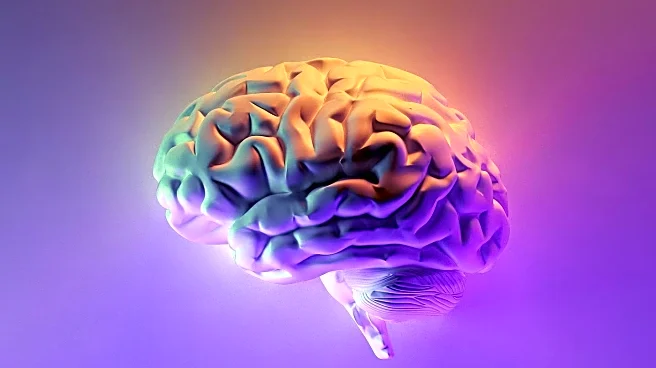What is the story about?
What's Happening?
Researchers at McGill University and the Douglas Institute have identified two specific types of brain cells that are altered in individuals with depression. The study, published in Nature Genetics, utilized post-mortem brain tissue from the Douglas-Bell Canada Brain Bank, which is one of the few collections worldwide with donated tissue from individuals with psychiatric conditions. By employing single-cell genomic techniques, the researchers analyzed RNA and DNA from thousands of brain cells, identifying altered gene activity in excitatory neurons involved in mood and stress regulation, and microglia cells that manage inflammation. This discovery provides a clearer understanding of the biological basis of depression, challenging misconceptions that the disorder is purely emotional.
Why It's Important?
The identification of specific brain cells affected by depression is a significant breakthrough in understanding the disorder's biological underpinnings. This research could lead to the development of precision treatments targeting these cells, offering hope to millions affected by depression globally. By mapping gene activity alongside DNA regulation, scientists have pinpointed cellular disruptions unique to depression, potentially paving the way for therapies that address these specific changes. This advancement not only deepens scientific understanding but also reinforces the notion that depression involves measurable changes in brain function, which could influence future public health strategies and treatment approaches.
What's Next?
The researchers plan to further study how these cellular changes impact brain function and explore whether targeting them could lead to improved therapies for depression. This next phase of research could involve developing drugs or interventions that specifically address the altered gene activity in the identified cell types. The findings may also prompt additional studies into the genetic variants associated with major depressive disorder, potentially leading to more personalized treatment options. As the research progresses, it could influence clinical practices and inform new guidelines for managing depression.
Beyond the Headlines
This study highlights the importance of using rare resources like the Douglas-Bell Canada Brain Bank, which provides unique insights into psychiatric conditions. The research underscores the ethical considerations in utilizing donated brain tissue for scientific advancement. Additionally, the findings may contribute to a shift in societal perceptions of depression, emphasizing its biological basis and reducing stigma associated with mental health disorders. Long-term, this research could influence policy decisions regarding mental health funding and support, advocating for increased investment in neuroscience research.

















